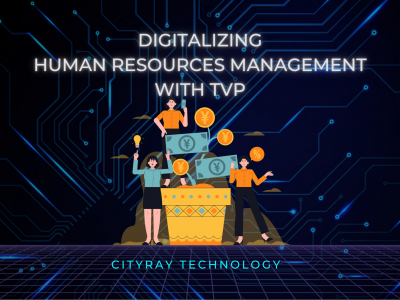Attendance Management: Benefits & Features of the System
Attendance Management: Benefits & Features of the System
Attendance management is a crucial aspect of any business, as it allows organizations to effectively monitor employee attendance, track productivity, and manage resources. In this article, we will explore the key features and benefits of Attendance Management Systems, and discuss how the Attendance Taking App can help businesses improve their attendance management processes.
Attendance Management: Benefits & Features of the System
Features of Attendance Management Systems
Attendance Management System (AMS) is a type of software used by businesses to track and manage employee attendance and working hours. This system automates the process of recording employee attendance and generates reports on employee attendance patterns and absences.
An Attendance Management System or Attendance App typically includes features such as:
Feature#1: Time and attendance taking
Attendance Management Systems allows employees to clock in and out using a variety of methods, such as biometric scanners, RFID badges, or web-based login systems. This data is then recorded and stored in a central database.
Feature#2: Leave management
Attendance Management Systems provides an automated system for employees to request and manage leave, and for managers to approve or reject these requests.
Feature#3: Overtime management
Attendance Management Systems tracks overtime hours worked by employees, and can generate reports to ensure compliance with labor laws and regulations.
Feature#4: Reporting and analytics
Attendance Management Systems generates reports and provides analytics on employee attendance and absence patterns, which can help managers identify potential issues and make data-driven decisions to improve attendance and productivity.
Feature#5: Integration with payroll systems
Attendance Management Systems can be integrated with payroll systems to automate the process of calculating employee salaries based on attendance and leave data.
Reasons Why Companies Invest in a Attendance Management Systems
Companies invest in an Attendance Management System for different reasons, and here are the 7 most common objectives:
1. Cost Reduction
An Attendance Management Systems can help companies reduce costs by automating redundant administrative tasks, such as manual time tracking and payroll processing. This can save companies time and money on manual attendance taking data entry, allowing valuable resources to be allocated on more important aspects.
2. Fast Attendance Taking
Manual attendance taking can be a time-consuming and inefficient process, especially for large companies with many employees. With an automated Attendance Management System or Attendance App, employees can clock in and out quickly and easily using a variety of methods such as biometric scanners, RFID tags, or mobile apps. This can save time and reduce the need for manual data entry, freeing up HR staff for more strategic initiatives.
3. Accurate Attendance Record
Accurate attendance records are critical for complying with labor laws and regulations, ensuring fair pay and benefits for employees, and tracking employee performance. An automated Attendance Management System can help ensure that attendance records are accurate and up-to-date, reducing the risk of errors and discrepancies. Additionally, an Attendance Management System can help track other important metrics such as overtime, sick leave, and vacation time.
4. Improve Employee experience
An Attendance Management System can make it more convenient for employees to manage their own attendance, allowing them to clock in and out easily and access their attendance records online. This can reduce the need for manual tracking and paper-based systems, making it easier for employees to manage their schedules and work more efficiently.
5. Facilitate Data Collection
An Attendance Management System or Attendance App can collect data on employee attendance and other important metrics, which can be used for further analysis. This can help identify trends and patterns in attendance taking, as well as opportunities for improvement. The system can also provide insights into employee behavior and preferences, which can be used to create more personalized and effective work environments.
6. Simplify Attendance Management
Attendance management can be a complex and demanding task, particularly for larger enterprises. An Attendance Management System can facilitate attendance management by automating many of the tasks involved, such as tracking employee attendance, approving time off requests, and managing overtime. This can help streamline the process, reduce errors and delays, and improve overall efficiency. Additionally, an Attendance Management System can provide real-time insights into attendance patterns, allowing managers to identify potential issues and take action to address them before they become problems.
7. Create Smart Working Office
An Attendance Management System can help companies create a more smart and connected working environment. By integrating with other systems, such as HR and payroll, the Attendance Management Systems can provide a more seamless and integrated experience for employees, and to help create a more efficient and productive workplace.
Importance of Attendance Management
After drilling deep into the must-have features and benefits of the Attendance App, let’s circle back to the core of today’s topic – Attendance Management.
Attendance management is the process of tracking employee attendance, managing work schedules, and ensuring that employees are compensated accurately for their time worked. It involves monitoring employee attendance, managing time-off requests, approving or denying overtime, and generating reports related to employee attendance.
The importance of attendance management lies at the core of business success.
Firstly, accurate attendance records are essential for compliance with labor laws and regulations. According to the Labour Department, Hong Kong has a set of regulations regarding the maximum working hours and working days. For example, no employee should work longer than 48 hours per week, and the number of working days should be kept within 6 days every week. These laws require businesses to accurately track employee work hours and ensure that employees can work clearly on the terms and conditions of employment. Failure to comply with these laws can result in costly fines and legal consequences for the business.
Attendance management is also important for tracking employee performance and productivity. By monitoring attendance records, businesses can identify patterns and trends that may indicate areas for improvement or training needs. Accurate attendance records can also help businesses to identify and address attendance taking issues such as absenteeism or tardiness, which can have a negative impact on productivity and morale.
Moreover, attendance management can help businesses to effectively manage employee schedules and ensure that workloads are evenly distributed. By tracking attendance, businesses can ensure that they have adequate staffing levels and can plan for any absences or time off requests.
Most importantly, attendance management can help businesses to reduce costs and increase efficiency. By automating attendance tracking and payroll processing with Attendance App, businesses can save time and reduce the risk of errors and inaccuracies. This can also free up HR staff to focus on more strategic initiatives and improve overall productivity.
If you’re interested in learning more about Attendance Management and how an Attendance App can help streamline your business operations, don’t hesitate to reach out to us.




